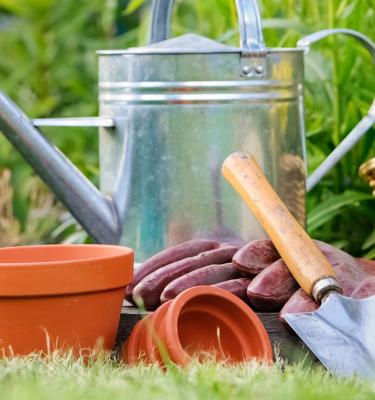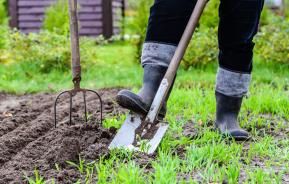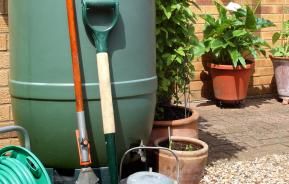In the UK, there are around 27 million people who partake in gardening. This is a huge portion of the 64 million that currently reside in this country.
In 2014, the gardening retail market was said to be worth around £5 billion. The HTA states that the market for gardening is ‘buoyant’ and has seen steady growth over the last 10-15 years due to the amount of disposable income increasing over that time.
As well as gardening for aesthetics, a number are growing their own fruit and veg at allotments, or in their own back garden.
This, of course, is such a good thing for the British gardening community. But who makes up the vast majority of that community?
What Is The Typical British Gardener?
Typically, females have made up the majority of those that garden with 57% the figure quoted. Many sources also state that the typical gardener in the UK is a middle class, white female, aged 55+.
The average age of the gardener has increased over the last 20 years, which could be down to a number of reasons.
Why is the average gardener older?
The social structure of life has changed somewhat for the vast majority, which in turn has seen an increase in the average age of the typical gardener. This shift is down to many people seeing their twenties and thirties, which traditionally was the time to settle down, as a time to concentrate on their working careers.
This, in turn, means that people are settling down and buying houses with their husband or wife a lot later on in life.
If men and women are settling down later on in life, then their free time will be taken up in their late thirties by looking after their children. As their children get older and they have more free time, people are spending more time in their garden.
A change in gardening culture?
Shows like Love Your Garden, have tried to address the shift in the average age by hiring younger presenters for younger viewers to be able to identify with. With the longstanding gardening personality of Alan Titchmarsh working alongside the new age, younger presenter of the likes of Frances Tophill, the show appeals to a wide demographic of the public.
Tophill thinks that there seems to be a swing to the sense of ‘homeliness’ becoming more fashionable; meaning that pastimes such as cooking and knitting have also seen an increase in popularity.
In fact, in the last couple of years, the Chelsea Flower Show has seen a number of younger gardeners being commended for their outstanding work! But are these ‘young gardeners’ anomalies to the majority of young adults who are more worried about their mobile phone or tablet?!
Not necessarily, as there has been a sharp increase in the number of 16-18-year-olds who are looking to do horticulture courses at college. Which would suggest that there looks to be a change of attitude amongst the younger generation, towards gardening?
Also, the biggest increase in the purchasing of garden equipment has occurred in the age bracket between 25 and 34, with the average spend doubling to around £650, over the last two years!
The future for British gardening
Recent findings from the British Journal of Sports Medicine state that gardening is linked to longer life and can provide the perfect replacement for a lack of exercise, avoiding a sedentary lifestyle.
Obviously this is a very positive statement for the benefits of gardening. With the current fitness boom, this can only suggest that the popularity of gardening will only increase over the next 5-10 years.
Gardening is also said to increase happiness too, with the activity bringing about a sense of peace and wellbeing. Due to the ever-increasing strain on life, gardening is known to be a great stress reliever, which can only point to gardening being a positive influence.
The UK life expectancy has also risen over the last few years to 81 years, meaning that there will be more ‘65 +’ gardeners who are living for longer! Couple this with the fact that there is a vastly increased interest in horticulture from the younger generation, gardening is definitely moving forward in the UK.
In contrast, the government has forecasted the figure of households that will not have access to a garden to grow by one million from between 1995 and 2020. But as we are past those dates, and the popularity of gardening is increasing still, it must be said that we the future of British gardening is looking rather rosy!








